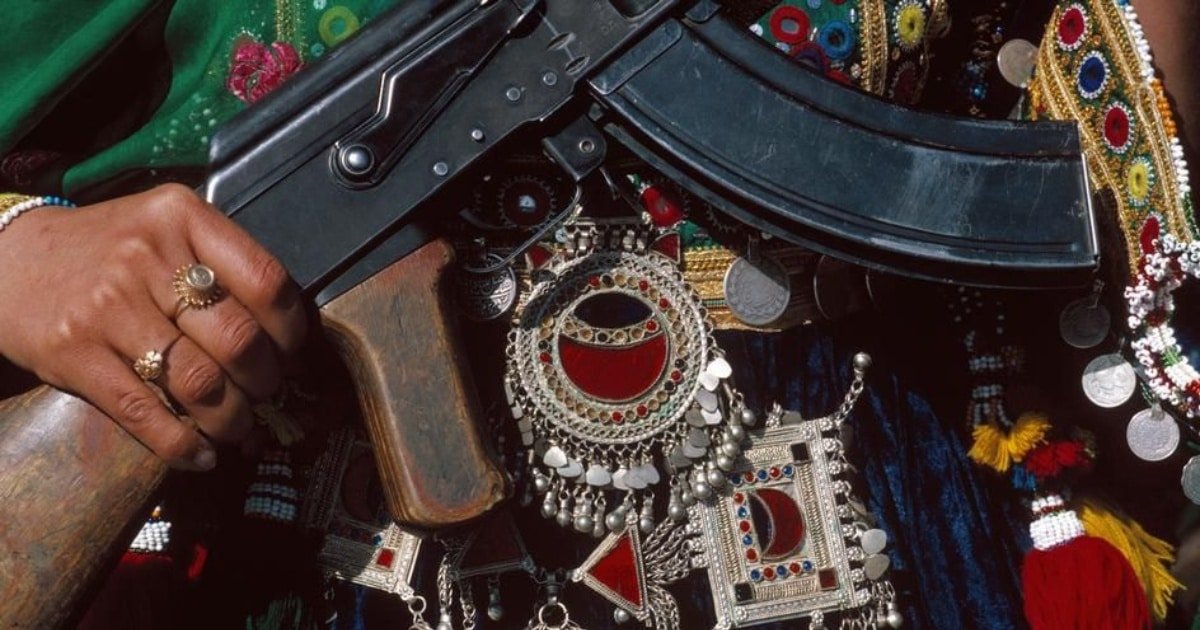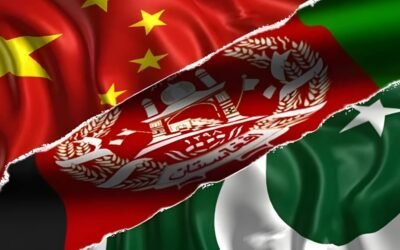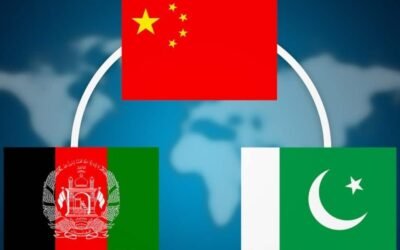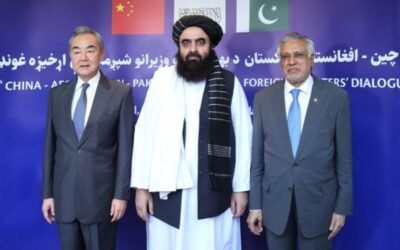The ‘Great Game’ was originally a reference to the 19th-century British-Russian imperial rivalry for domination of Central Asia. The term took up a dramatic new life during the Cold War. In its contemporary form, the game referred to a contest between the United States and the Soviet Union. At the geopolitical and strategic heart of this conflict was Pakistan, a key player forced into the frontline by the circumstances of a global struggle for dominance that would transform regional politics and redefine world history forever.
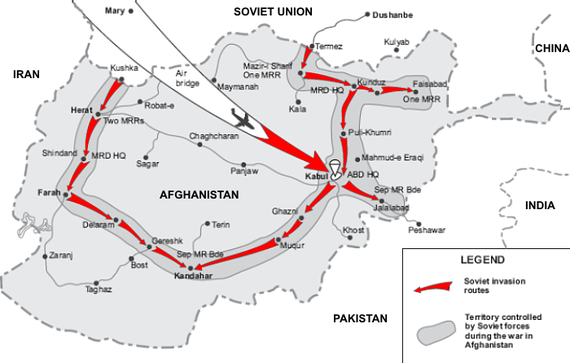
Source: Wikipedia
Pakistan as the Frontline State
The Soviet invasion of Afghanistan in 1979 brought the Cold War to Pakistan’s front door. During General Zia-ul-Haq’s rule, Pakistan adopted the role of a frontline state against Soviet Expansionism. If anything, Pakistan was the last line of defense against the USSR and the free world. Three closely related factors that informed this alignment were:
Security Concerns:
An Afghan-dominated Soviet Union posed a threat to Pakistan’s national security, especially its western border and regional influence.
Ideological Imperative:
The Islamization process of General Zia Ul Haq declared the conflict as a ‘jihad’ (armed struggle) against a communist, atheist superpower that had plans to eventually encroach upon Pakistani territory to reach the ‘hot waters’.
Strategic Opportunity:
Pakistan, due to its strategically important position, joined the US and NATO, receiving significant economic and military aid. This coincidence of interests transformed Pakistan into a central operational base in what would become one of the most significant proxy wars of the 20th century.
You May Like To Read: The Tragedy of Gyari Avalanche: No Soldier Left Behind
Soviet-Afghan War and the Role of Pakistan
With the escalation of the Soviet invasion, the Inter-Services Intelligence (ISI) became the principal pipeline through which Western military assistance reached the Afghan Mujahideen in the form of arms and other logistics. The Central Intelligence Agency (CIA) launched Operation Cyclone, which was perhaps the longest and most costly covert operation in the history of US intelligence. Under this operation, the US funneled billions of dollars’ worth of arms and financial aid to the rebels. ISI played a pivotal role in this operation.
Role of ISI in Bringing down the USSR
Arming and training:
Pakistan trained more than 100,000 Mujahideen fighters, armed them, and arranged battlefield logistics for their smooth functioning.
Coordination of strategy:
In collaboration with the CIA and Saudi intelligence, the ISI coordinated planning of insurgent strikes and facilitated the efficient allocation of resources to the Mujahedin.
Safe Heaven:
Pakistan opened its borders for millions of Afghan refugees and permitted Mujahideen commanders to base their operations from camps along the Durand Line, especially in Peshawar and Quetta.
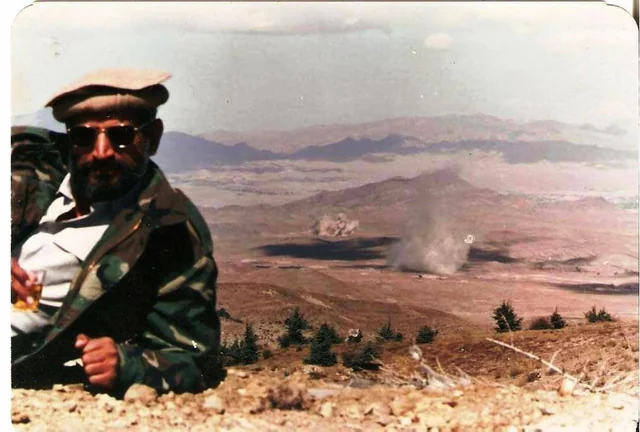
Source: Reddit
One of the most determining elements of the war was the use of ‘U.S.-supplied Stinger missiles’ that were introduced in 1986. These anti-aircraft missiles, shoulder-fired, assisted the Mujahideen in shooting down Soviet jets and helicopters. This helped destroy the USSR’s air superiority and morale.
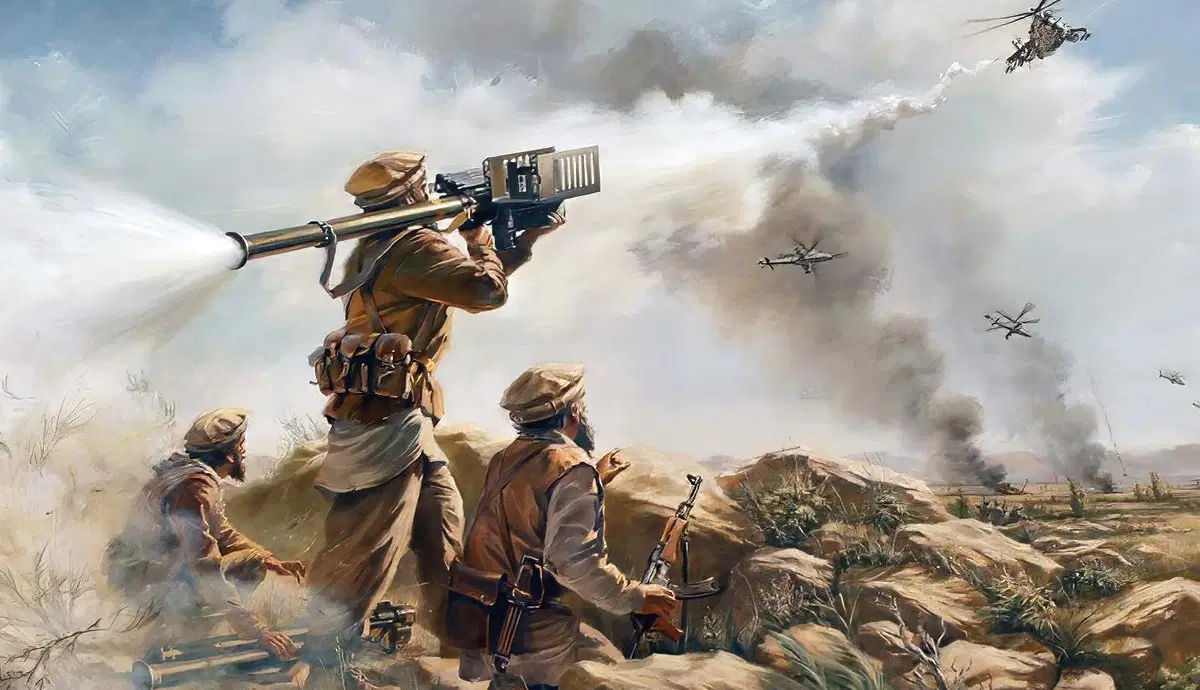
Source: thecollector
Collapse of the USSR
The conflict saw more than 15,000 Soviet soldiers dead, and tens of thousands were injured. The economic cost, rising casualty numbers, and rising domestic opposition in the USSR were key factors in their weakening hold over Central Asia. Scholars like Zbigniew Brzezinski and Steve Coll have argued that the Afghan war expedited internal opposition and directly led to the fall of the Soviet Union in 1991.
Kamal Matinuddin’s Analysis: Power Struggle in the Hindu Kush
In his book, ‘Power Struggle in the Hindu Kush, ’ Lt. Gen. Kamal Matinuddin gives a rare insight into the Pakistani military-diplomatic view of the war in Afghanistan. A retired diplomat and high-ranking officer, Matinuddin gives an in-depth insider’s account of how internal politics, regional tensions, and changing alignments shaped Islamabad’s policy since the Saur Revolution in 1978 to the signing of the Geneva Accords and the Soviet retreat in 1989. He explains how ISI handled aid, carried out missions, and their interaction with Mujahideen commanders such as Gulbuddin Hekmatyar and Ahmed Shah Massoud developed over the years. Matinuddin also remarks how the war changed Pakistan’s regional status and made it vulnerable to long-term security issues like sectarianism and terrorism.
You May Like To Read: The Tragedy of Gyari Avalanche: No Soldier Left Behind
Broader Impacts on Pakistan: ‘The Kalashnikov Culture’
The war did not just end one day and all traces of it were removed instantly. It left its impact on the region. First and foremost, Pakistan took in more than 3 million Afghan refugees, which put a significant strain on its economy and infrastructure. Another important issue was the arrival of weapons and drugs, and their easy availability, which brought in the Kalashnikov culture. Brandishing of arms and their easy procurement in the markets of Peshawar and the tribal region brought with it new criminal and social problems. The conflict also offered fertile soil for the emergence of radical ideologies, a great many of which would go on to evolve into groups such as the Taliban and shape Pakistan’s domestic security dynamics.
Legacy of The Great Game
These Afghan war rugs follow the style of traditional Persian paintings, but were actually made in the 1980s, during the Soviet-Afghan war. The weavers replaced floral designs with helicopters, tanks, soldiers and machine guns. #IObject pic.twitter.com/UdY3QwmHaM
— British Museum (@britishmuseum) January 12, 2019
With the end of the Cold War, the legacy of Pakistan as a frontline state continues. The region continues to be beset by instability, and the power vacuum created by the Soviets ultimately spawned the Taliban regime, civil wa,r and ultimately the post-9/11 U.S. invasion of Afghanistan. The same networks of militants that were created in the 1980s re-emerged under new flags, and Pakistan’s own war on terror is a direct extension of policies cut from that previous Great Game.
Lessons have been learnt from The Great Game. Pakistan’s strategic position during the Soviet-Afghan War is also a case study in the value and risk of joining proxy wars. While Islamabad gained considerable international backing and the near-term goal of resisting Soviet power, it also extracted a high long-term cost in terms of internal destabilization and regional skepticism. Although there are voices that assert that Pakistan should not have entered this war, they readily forget that Pakistan’s geo-strategic position forced it to join and protect its own sovereignty as well. There was no guarantee that the Soviets would stop at the Durand line and not expand any further. In the history of the Great Game and in the Great Game of today, Pakistan is still a central player, wedged between global aspiration and local repercussions, and must tread carefully.

